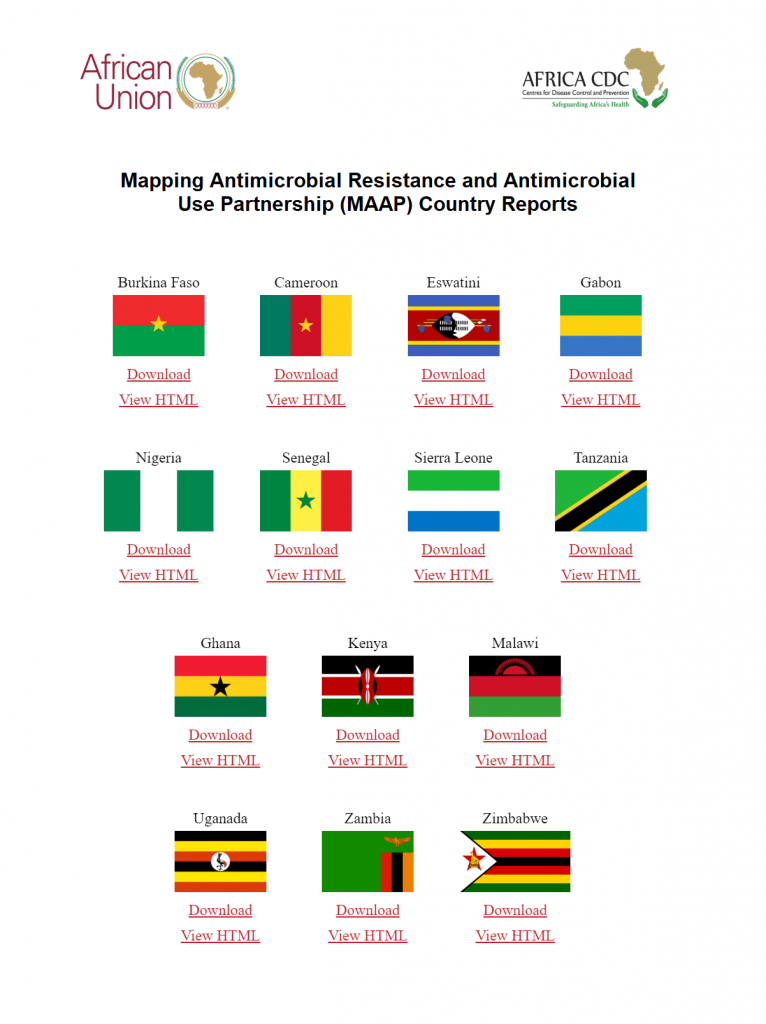The Mapping Antimicrobial Resistance and Antimicrobial Use Partnership (MAAP) project has conducted a multi-year, multi-country study that provides stark insights on the under-reported depth of the antimicrobial resistance (AMR) crisis across Africa and lays out urgent policy recommendations to address the emergency.
MAAP reviewed 819,584 AMR records from 2016-2019, from 205 laboratories across Burkina Faso, Cameroon, Eswatini, Gabon, Ghana, Kenya, Malawi, Nigeria, Senegal, Sierra Leone, Tanzania, Uganda, Zambia, and Zimbabwe. MAAP also reviewed data from 327 hospital and community pharmacies and 16 national-level AMC datasets.
The results of the study, which was supported by the Fleming Fund, provide insight into the AMR burden and antimicrobial consumption (AMC) collectively across the 14 African Union (AU) Member States — areas where most available data on AMR is only based on statistical modelling. Check out this infographic of MAAP’s key findings. The study found that:
The reports published here provide insight into the specific situation of each of the MAAP-participating Member States. Country data can inform national AMR containment plans and serve as baseline to prospectively monitor AMR, AMC and the strengthening of bacteriology laboratories.
Each Member State report is available below to download in PDF.
| File | Action |
|---|---|
| AMR REPORT BURKINA FASO – EN | Download |
| AMR REPORT CAMEROON – EN | Download |
| AMR REPORT CAMEROON – FR | Download |
| AMR REPORT ESWATINI – EN | Download |
| AMR REPORT GABON – EN | Download |
| AMR REPORT GABON – FR | Download |
| AMR REPORT GHANA – EN | Download |
| AMR REPORT KENYA – EN | Download |
| AMR REPORT MALAWI – EN | Download |
| AMR REPORT NIGERIA – EN | Download |
| AMR REPORT SENEGAL – EN | Download |
| AMR REPORT SIERRA LEONE – EN | Download |
| AMR REPORT TANZANIA – EN | Download |
| AMR REPORT UGANDA – EN | Download |
| AMR REPORT ZAMBIA – EN | Download |
| AMR REPORT ZIMBABWE – EN | Download |
